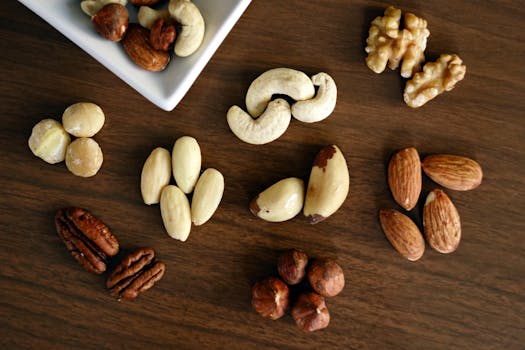Goji berries, often dubbed a “superfood” for humans, are packed with nutrients and antioxidants. But as a dog owner, you might wonder: can dogs eat goji berries, and are they safe? Let’s dive into the details to help you make the best choice for your furry friend.
🍓 What Are Goji Berries?
Goji berries, also known as wolfberries, are small red fruits native to Asia. They are praised for their high levels of vitamins, minerals, and antioxidants. For humans, they are often added to smoothies, trail mixes, or eaten as snacks to boost health and energy. But how do they fit into a dog’s diet?
Dogs have different nutritional needs than humans, so not every food that’s good for us is safe for them. While goji berries are not toxic to dogs, there are some important considerations to keep in mind before sharing them with your pup.
🐕 Are Goji Berries Safe for Dogs?
Yes, goji berries are generally safe for dogs to eat in moderation. They are non-toxic and can even provide certain health benefits. However, like any new food, they should be introduced carefully and in small amounts.
It’s essential to consider factors like your dog’s size, overall health, and dietary needs before adding goji berries to their meals or treats. While they’re safe for most dogs, some pups may have sensitivities or reactions to new foods.
🌟 Potential Benefits of Goji Berries for Dogs
When given appropriately, goji berries can offer some nutritional perks for dogs. Here’s a closer look at their potential benefits:
- Rich in antioxidants that may support immune health
- Contain vitamins A, C, and E for skin and coat health
- Provide fiber that aids in digestion
- Low in calories, making them a healthy treat option
These benefits can complement your dog’s diet, but they shouldn’t replace their regular meals or essential nutrients.
⚠️ Risks and Precautions
While goji berries are safe for most dogs, there are a few risks to keep in mind:
- Goji berries are high in natural sugars, which can lead to weight gain or upset stomach if overfed.
- Some dogs may experience allergic reactions or sensitivities, such as itching or gastrointestinal issues.
- If your dog has diabetes, consult your vet before offering goji berries due to their sugar content.
- Dried goji berries can pose a choking hazard for small dogs if not chewed properly.
Always monitor your dog after introducing a new food and consult your vet if you notice any adverse reactions.
🐾 How to Safely Feed Goji Berries to Your Dog
If you decide to share goji berries with your dog, follow these tips to do so safely:
- Wash fresh goji berries thoroughly to remove any pesticides or contaminants.
- Start with a small amount, such as one or two berries, to see how your dog reacts.
- Offer them as a treat or mix a few into your dog’s regular food.
- Chop dried goji berries into smaller pieces to reduce the risk of choking.
- Avoid goji berries that are sweetened or mixed with other ingredients like chocolate or raisins, which are toxic to dogs.
By following these steps, you can ensure your dog enjoys goji berries safely and responsibly.
🐶 Signs Your Dog May Have Eaten Too Many Goji Berries
If your dog eats too many goji berries, they may show signs of discomfort or illness. Watch out for these symptoms:
- Diarrhea or loose stools
- Vomiting
- Lethargy or lack of energy
- Excessive thirst or urination
- Itching or skin irritation (if allergic)
If you notice any of these signs, stop feeding goji berries immediately and consult your vet for advice. Severe reactions are rare but require prompt attention.
🌿 Alternatives to Goji Berries
If you’re unsure about goji berries or your dog doesn’t enjoy them, there are plenty of other healthy fruits and vegetables you can try:
- Blueberries: Packed with antioxidants and low in sugar
- Carrots: Crunchy and great for dental health
- Apples: A good source of fiber (just remove the seeds and core)
- Green beans: Low-calorie and nutrient-rich
These alternatives can provide similar health benefits without the potential risks associated with goji berries.
FAQs
Q: Can puppies eat goji berries?
A: Puppies can eat goji berries in very small amounts, but their digestive systems are more sensitive. Consult your vet before introducing new foods to a puppy’s diet.
Q: Are dried goji berries safe for dogs?
A: Yes, but chop them into smaller pieces to prevent choking, especially for small dogs. Avoid sweetened or flavored dried goji berries.
Q: How many goji berries can I give my dog?
A: Start with one or two berries as an occasional treat. Larger dogs may tolerate a few more, but moderation is key.
Q: What should I do if my dog eats too many goji berries?
A: Monitor your dog for symptoms like diarrhea or vomiting. Contact your vet if symptoms persist or worsen.
Q: Are there any dogs that should avoid goji berries?
A: Dogs with diabetes, food allergies, or sensitive stomachs should avoid goji berries unless approved by a vet.
References
Book a $49 online vet consultation at https://www.dialavet.com for fast, expert advice.























